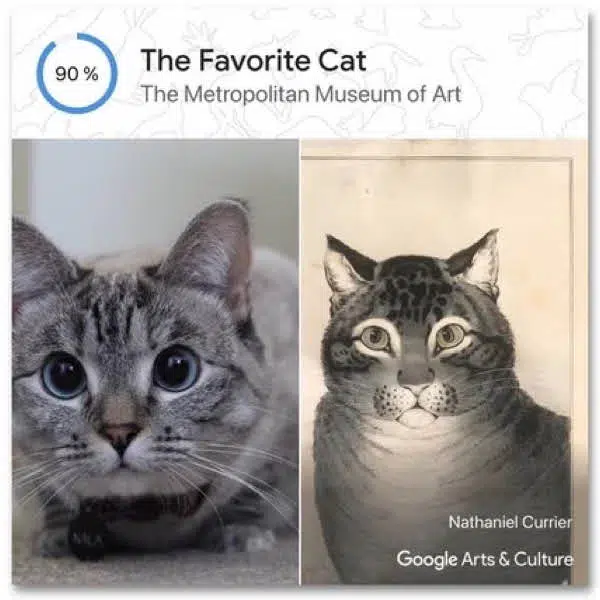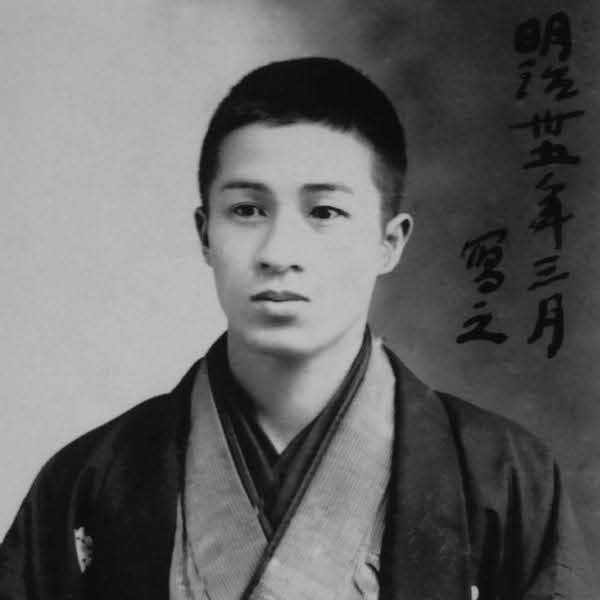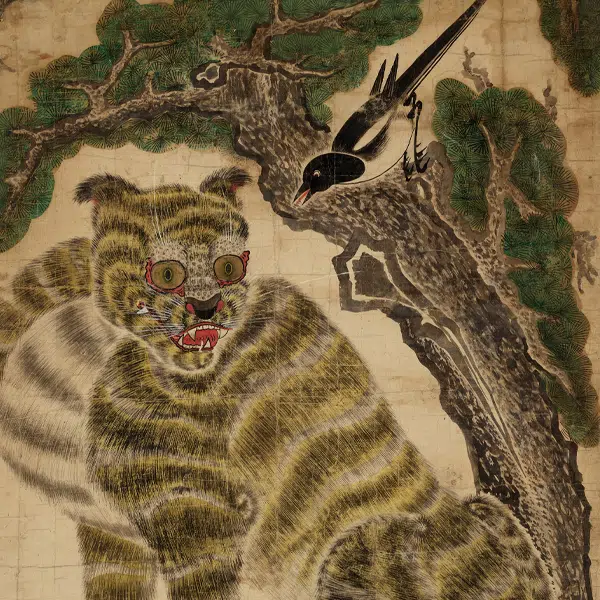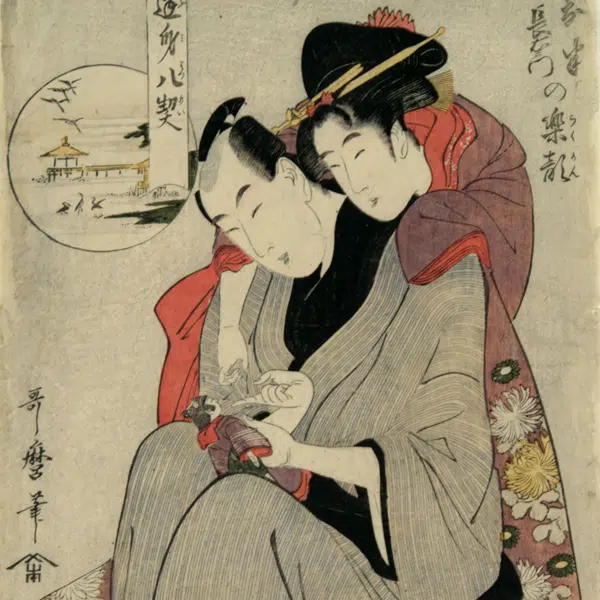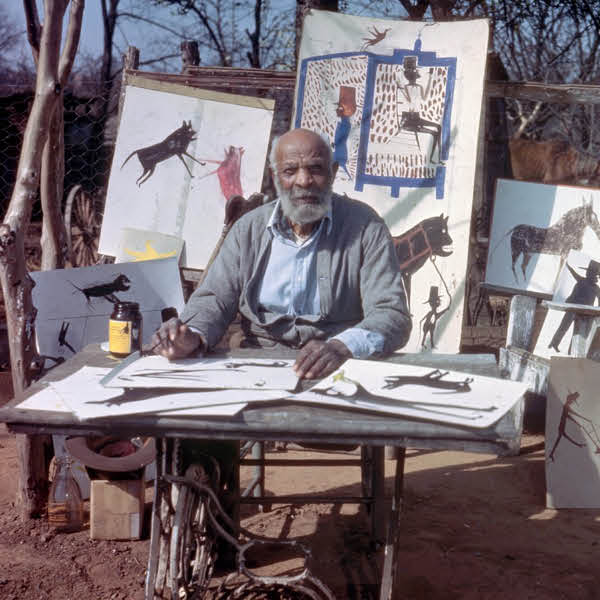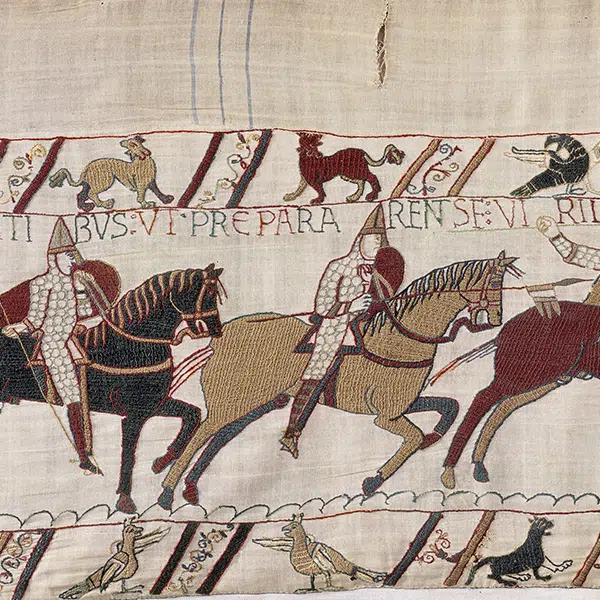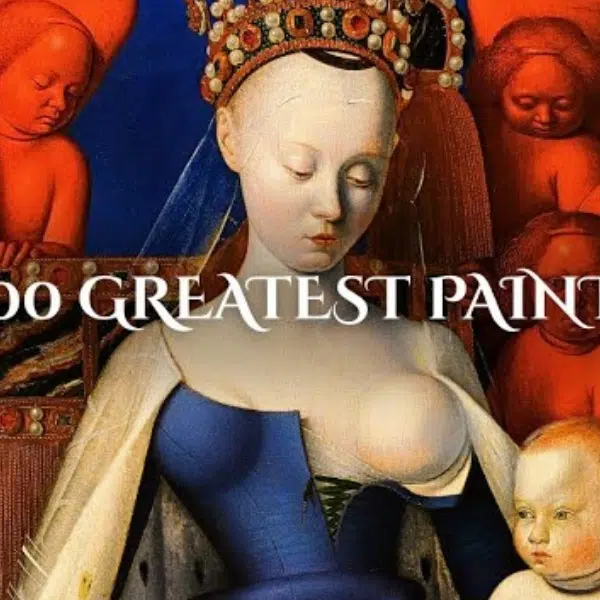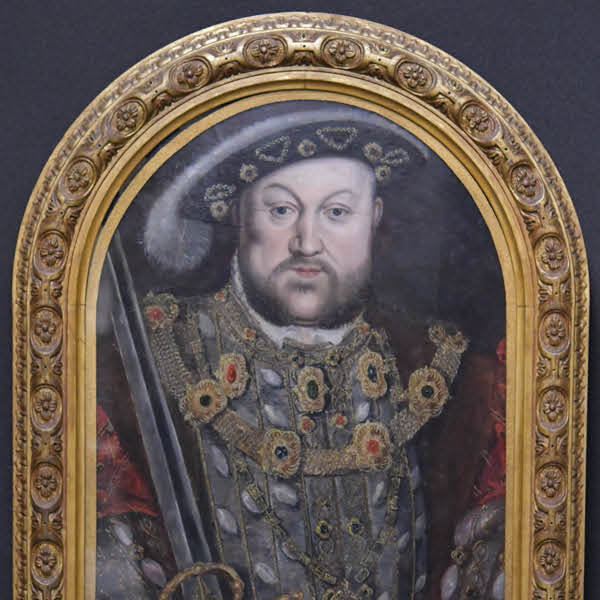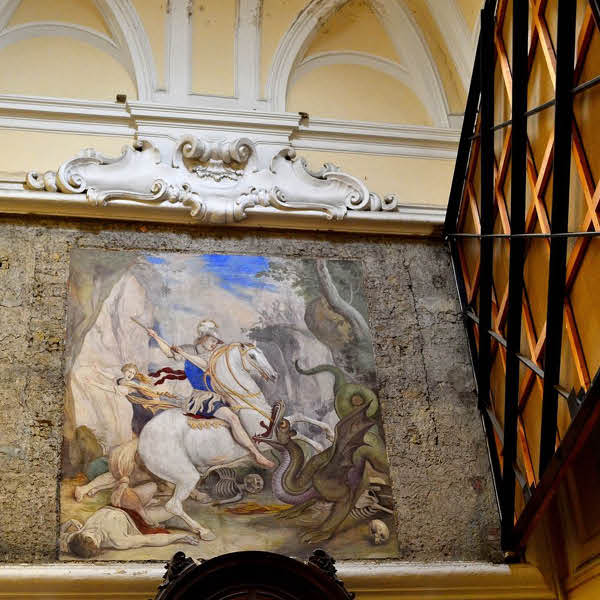Contemporary Pointillism Artists
Miguel Endara
One modern artist to adopt the Pointillism technique is Miguel Endara. His amazing photo-realistic piece titled Hero (2011) is made of of a staggering 3.2 million hand-drawn dots. The artist used just one pen—a Sakura Pigma Micron (nib size 005, 0.20 mm)—and took a full year to complete the piece. Endara reveals, “I logged in exactly 210 hours of just stippling.”
Ana Enshina
London-based watercolor artist Ana Enshina uses multicolored dots of various shapes and sizes to illustrate majestic animals. Dot by dot, the pointillistic artwork forms diverse creatures including a regal peacock, pink flamingo, and rainbow-colored owl.
Kyle Leonard
Los Angeles-based artist Kyle Leonard (aka K.A.L) creates amazingly realistic drawings made up of countless tiny dots using fine-tipped pens. “Pointillism is my method of madness,” Leonard explains, referring to the painstaking technique. We commend his patience!
Philip Karlberg
Swedish photographer Philip Karberg creates 3D Pointillism art using thousands of painstakingly arranged wooden pegs, painted in different colors, and placed into boards. The artist then photographs each of the peg portraits using his clever lighting skills to reveal the celebrity behind the glasses.
Herb Williams
Another artist to take Pointillism to the third-dimension is Herb Williams, who used thousands of colorful crayons to create a colorful pixelated portrait of his client’s wife in the ‘60s. The artist explains, “When you're right up to the portrait, it's abstract, but from a distance it completely works.” He has since continued using crayons as his medium, and has even created life-sized dog sculptures from them.
Jihyun Park
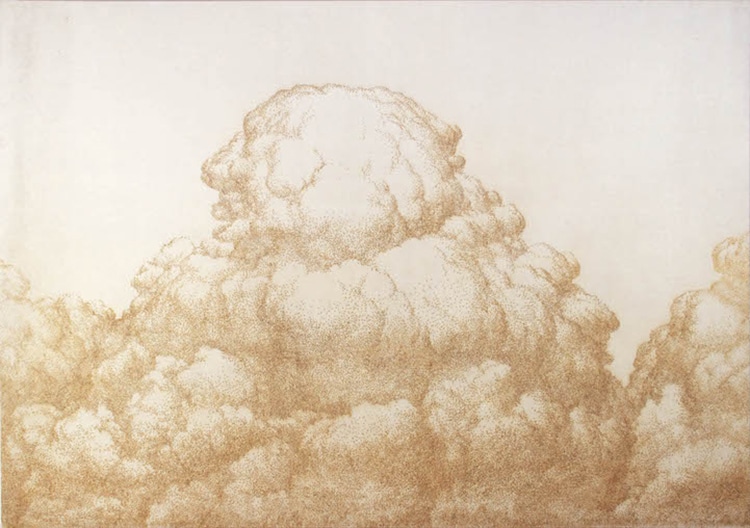
Image: Jihyun Park
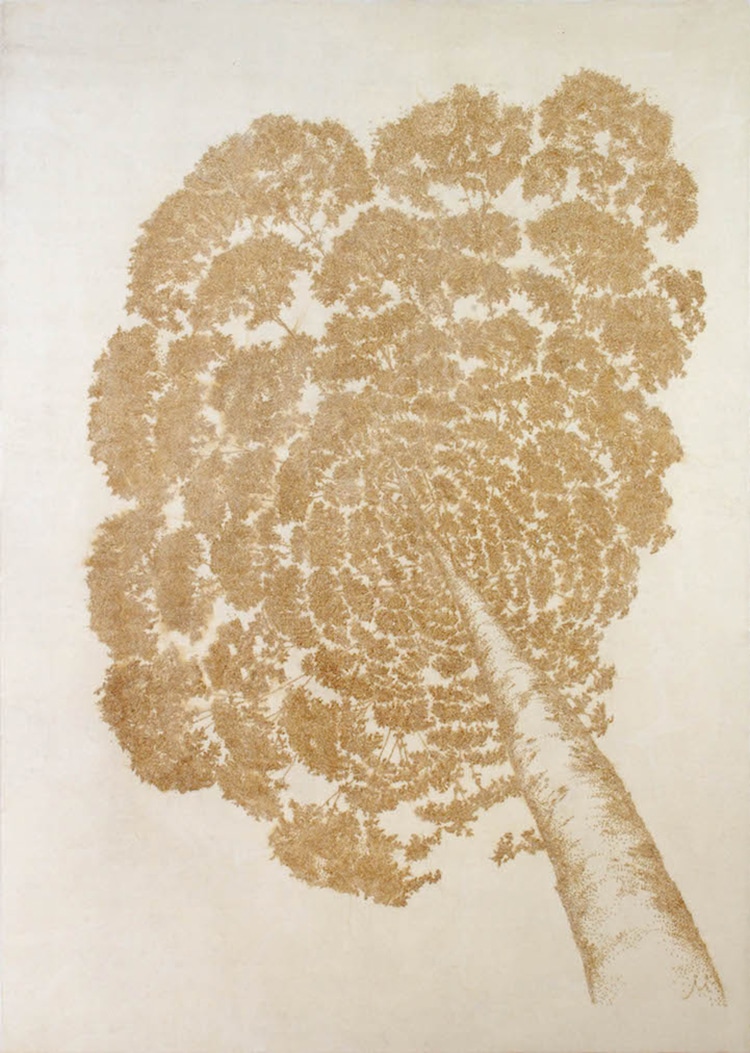
Image: Jihyun Park
Korean artist Jihyun Park approaches the art of Pointillism from an unorthodox direction—by creating it in reverse. The artist uses incense sticks to burn thousands of tiny holes into rice paper until he makes recognizable images of clouds, mountains and trees. Titled the Incense Series, the final hole-filled drawings are mounted on varnished canvases, which reflect light and reveal the image.
Yayoi Kusama
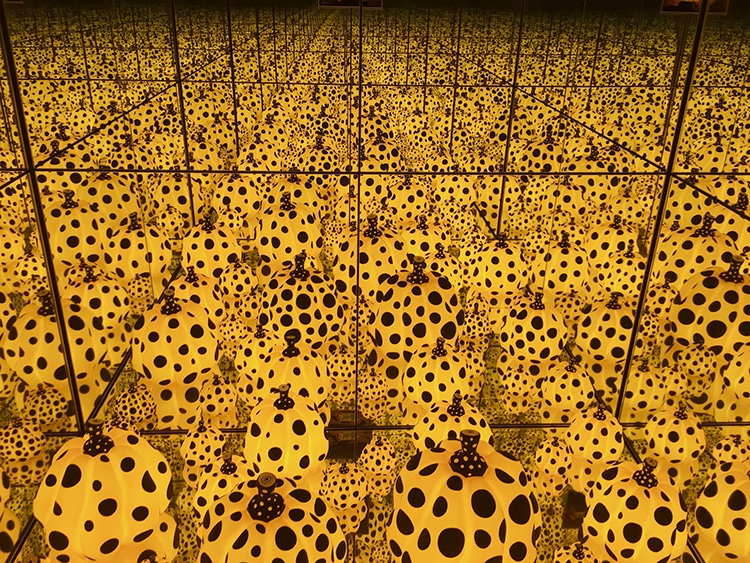
“Yayoi Kusama: All the Eternal Love I Have for the Pumpkins” (Photo: foursummers [Creative Commons CC0])
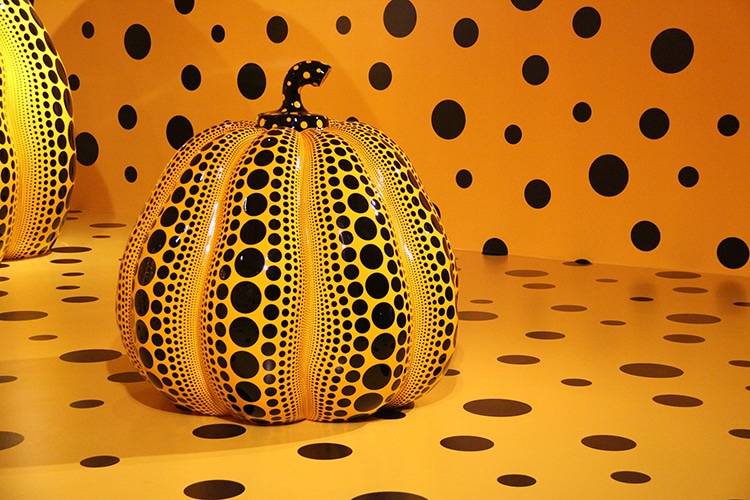
“Yayoi Kusama: All the Eternal Love I Have for the Pumpkins” (Photo: foursummers [Creative Commons CC0])
Kusama incorporates polka dots into her work in almost all forms; she covers surfaces in polka dots, makes polka dot covered clothing, and even creates entire dot-filled environments and mind-boggling installations. She explains, “A polka-dot has the form of the sun, which is a symbol of the energy of the whole world and our living life, and also the form of the moon, which is calm. Round, soft, colorful, senseless and unknowing. Polka dots can't stay alone; like the communicative life of people, two or three polka dots become movement…polka-dots are a way to infinity.”
Related Articles:
Exploring the Vision and Diverse Styles of Post-Impressionism Pioneers
10 Revolutionary Art Movements That Have Shaped Our Visual History
Majestic Animals Envisioned as Hundreds of Multicolored Dots
Countless Meticulously-Stippled Dots Form Fantastical Drawings
Reverse-Pointillism Landscapes: Artist Uses Incense to Burn Thousands of Tiny Holes into Paper












































































